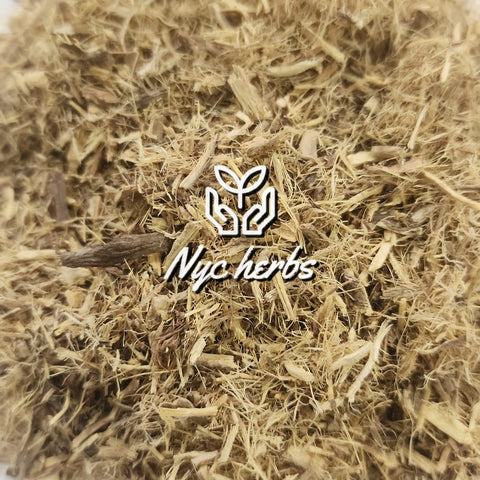- Home loose herbs
- Licorice Root | Adrenal Support & Digestive Soother
Licorice Root | Adrenal Support & Digestive Soother

The Remedy:
Licorice Root (Glycyrrhiza glabra) also known as Sweet Root, Regaliz, Lakritz, and Yastimadhu—is a soothing, adaptogenic herb traditionally used to support adrenal function, digestion, respiratory health, and hormonal balance. Rich in glycyrrhizin, flavonoids, saponins, and demulcent compounds, licorice helps calm inflammation, coat irritated tissues, and gently uplift energy.
Commonly used to ease acid reflux, gastritis, ulcers, cough, sore throat, adrenal fatigue, PMS symptoms, and stress-related imbalance, licorice root also supports healthy cortisol rhythms and overall immune strength. Its sweet, cooling nature makes it ideal for soothing the gut, lungs, and nervous system.
Enjoyed as a tea, tincture, capsule, powder, or blended formula, licorice root provides nourishing support for inflammation, digestion, and adrenal health.
Available Forms: Cut & Sifted Root, Powder
Pairs Well With:
• Marshmallow Root – throat and digestive soothing
• Slippery Elm – mucous membrane repair
• Ginger – digestion, circulation & warmth
• Ashwagandha – adrenal support & stress balance
• Mullein Leaf – respiratory comfort & lung support
